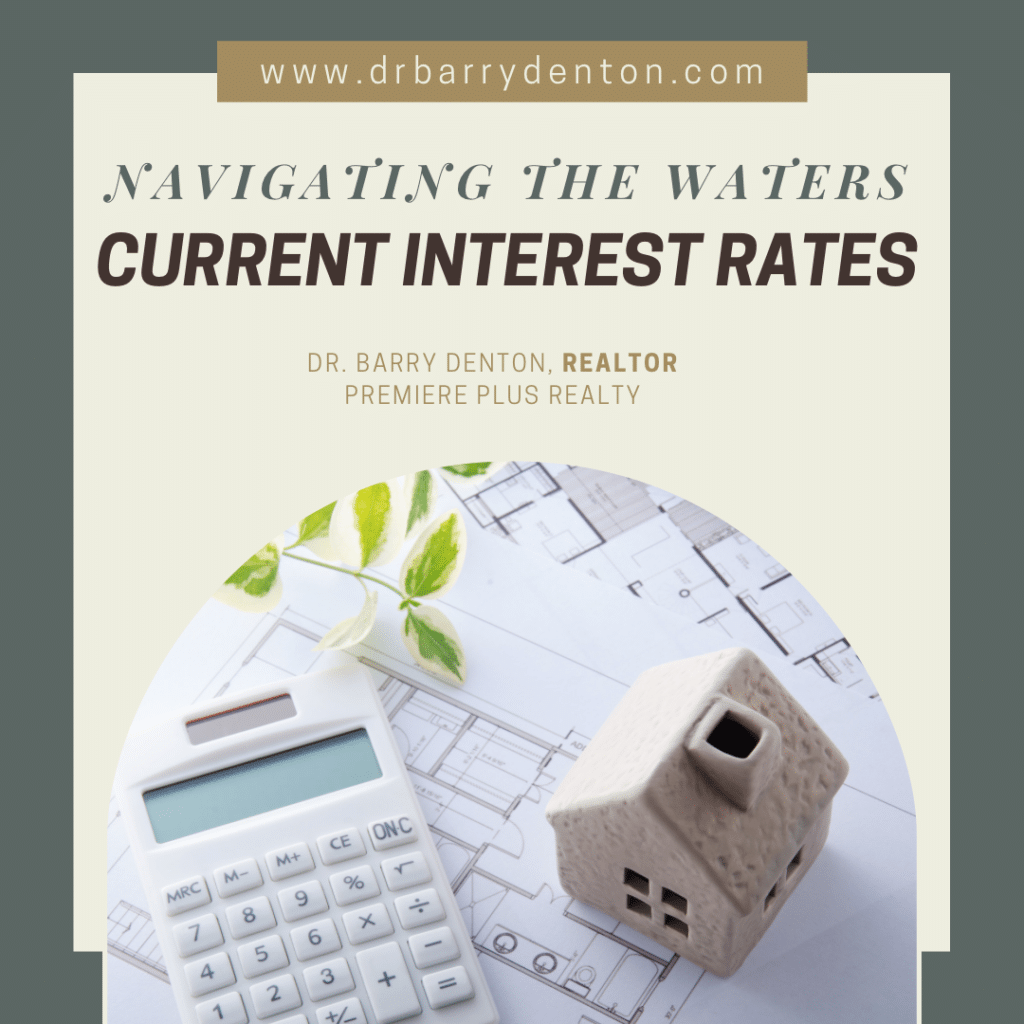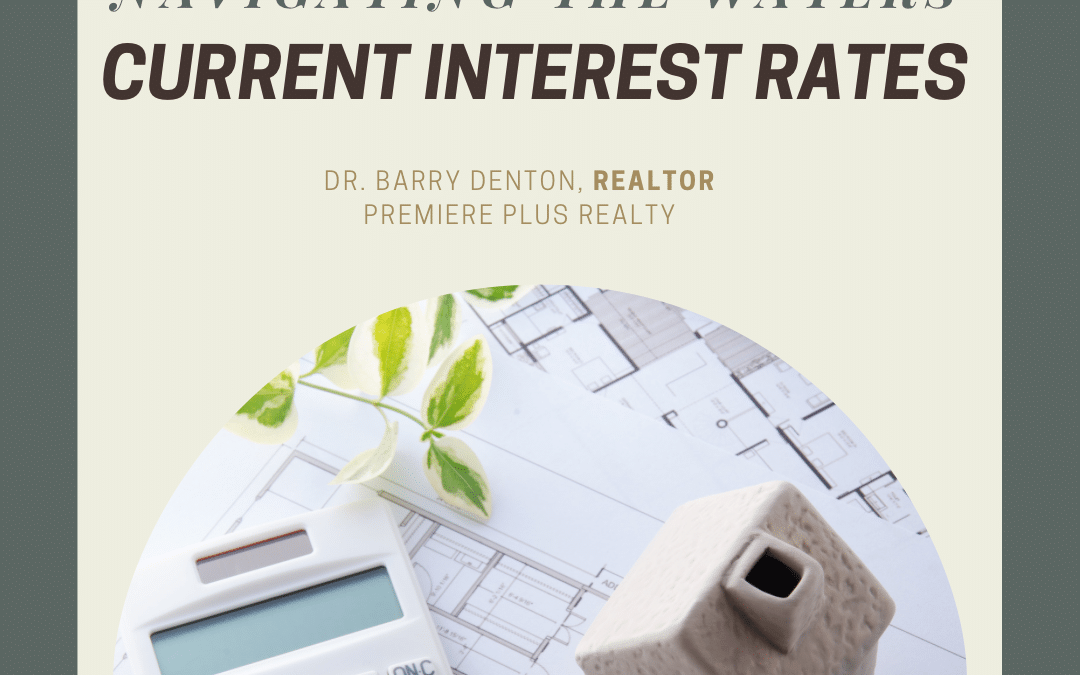by Dr. Barry Denton, REALTOR, Premiere Plus Realty

In the ever-evolving landscape of real estate, one of the most crucial factors influencing the market is interest rates. Whether you’re a first-time homebuyer or a seasoned investor, understanding how interest rates impact the housing market is essential for making informed decisions. In this blog, we’ll delve into the current state of real estate interest rates, their significance, and how they may affect your homebuying journey.
The Current Landscape
As of [current date], interest rates in the real estate market remain at historically low levels. This trend has persisted for several years, primarily due to monetary policies aimed at stimulating economic growth and mitigating the impacts of the COVID-19 pandemic. Low interest rates have been a boon for prospective homebuyers, as they translate to more affordable mortgages and increased purchasing power.
Significance of Interest Rates
Interest rates play a pivotal role in shaping the housing market in several ways:
- Affordability: Lower interest rates mean lower monthly mortgage payments, making homeownership more accessible to a broader range of buyers. This can lead to increased demand for homes and, consequently, upward pressure on prices.
- Refinancing: Homeowners can take advantage of low interest rates to refinance their existing mortgages, potentially lowering their monthly payments or reducing the term of the loan. Refinancing can also free up funds for other purposes, such as home improvements or debt consolidation.
- Investor Behavior: Real estate investors closely monitor interest rate movements, as they impact the profitability of investment properties. Lower interest rates may incentivize investors to purchase more properties, driving up demand and prices in certain markets.
- Market Dynamics: Interest rates influence supply and demand dynamics in the housing market. Low rates can stimulate demand for homes, leading to increased construction activity and a seller’s market. Conversely, rising interest rates may dampen demand and shift the market in favor of buyers.
Factors Influencing Interest Rates
Several factors contribute to the determination of real estate interest rates, including:
- Monetary Policy: The Federal Reserve plays a central role in setting short-term interest rates through its monetary policy decisions. Changes in the federal funds rate can influence mortgage rates, although they are not directly correlated.
- Economic Indicators: Market conditions, such as inflation, unemployment, and GDP growth, can influence interest rates. Strong economic indicators may lead to expectations of higher inflation, prompting lenders to raise rates to compensate for purchasing power erosion.
- Global Events: Geopolitical tensions, global economic trends, and events such as the COVID-19 pandemic can affect interest rates. Uncertainty in global markets may lead investors to seek safer assets, such as bonds, driving down yields and mortgage rates.
Implications for Homebuyers
For prospective homebuyers, the current low-interest-rate environment presents both opportunities and challenges:
- Affordability: Low interest rates increase affordability and purchasing power, allowing buyers to afford larger homes or more desirable locations.
- Competition: Increased affordability may lead to heightened competition among buyers, particularly in markets with limited inventory.
- Long-Term Planning: Buyers should consider the long-term implications of their mortgage choices, including potential rate increases in the future and the impact on monthly payments.
Conclusion
In conclusion, real estate interest rates are a fundamental aspect of the housing market, influencing affordability, demand, and market dynamics. The current low-rate environment has created opportunities for homebuyers but requires careful consideration and strategic planning. By staying informed about interest rate trends and their implications, buyers can make informed decisions to navigate the complexities of the real estate market effectively. Whether you’re a first-time buyer or a seasoned investor, understanding the interplay between interest rates and the housing market is essential for achieving your homeownership goals.
Navigating the Waters: Current Interest Rates

